After getting to know Bat/Bad Blue, Ben “Fierce Eagle of Nevada” Smith and, last but certainly not least, Lick Joe, let’s meet the rest of Violence Fight‘s colorful personalities, shall we?
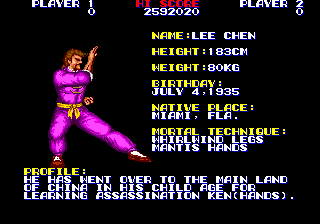
First, we have Lee Chen, the fourth and final playable character, who certainly looks representative of the 80s, with his mullet and pr0n moustache. 🙂 I still don’t know what “Assassination Ken (Hands)” means; that’s the kind of phrase one would expect from an automatic translator, which would certainly explain a lot about the “Engrish” seen in this entire game…
And now for the bosses:
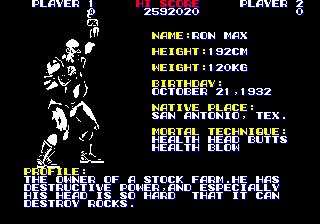
Out of San Antonio, Texas, here’s Ron Max. Boasting “destructive power” (unlike the constructive power shown by the other characters so far, of course), we are also told that “especially his head is so hard that it can destroy rocks”. I think he’s wasted as the owner of a stock farm, as he could instead have used his head (ouch!) to get ahead (groan!) in the world.
Note also the names of his two “mortal techniques”: health head butts and health blow. One wonders whose health he’s talking about. Does he gain health from head butting his opponents? Or do his blows diminish his adversaries’ health (again, unlike the blows of every other fighter, of course)? Inquiring minds want to know.
And, finally…
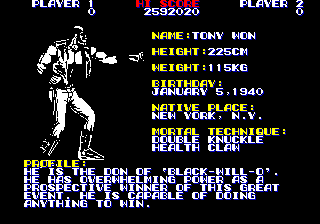
… the big boss himself, Tony Won, leader of the poorly named “Black-Will-O” crime syndicate (which we suppose is the “Mafia” part of “Mafia, reckless drivers and general businessmen“). Other than his “overwhelming power” and being “capable of doing anything to win”, he seems to imitate Ron Max, with a technique called health claw. If you ask me, I think Ron should sue. “Hey, buddy, I’m the guy who came up with randomly adding “health” to technique names!” 🙂
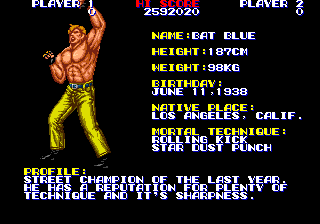
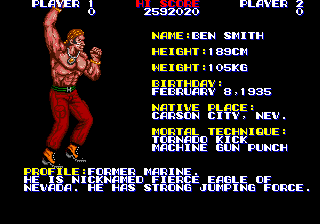
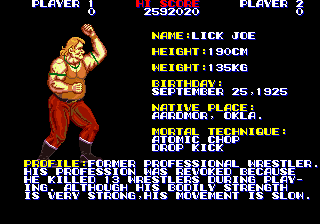
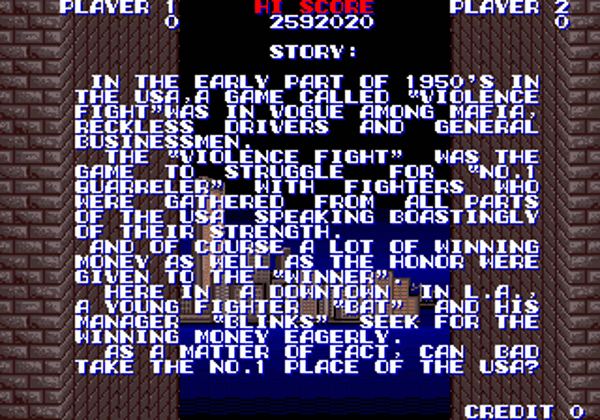
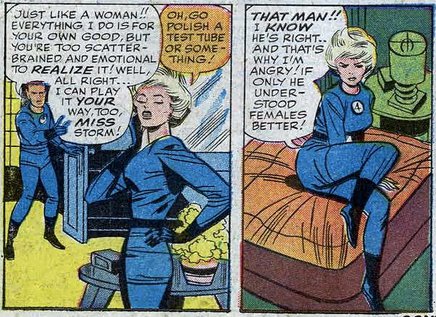
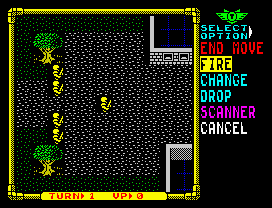
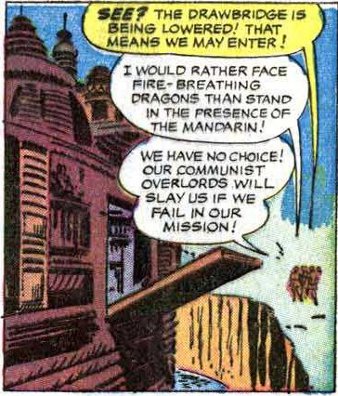
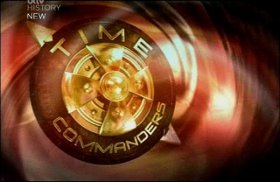
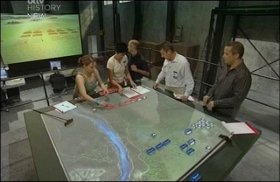 When I started this blog, one of the conscious decisions I made back then was to avoid the common “look at this cool thing I’ve just found!” posts. The reasons are several: because that tends to “date” posts (i.e. what’s novelty now will be old hat in a couple of months), because that makes a blog little more than a collection of links, and because tons of other blogs already do exactly that.
When I started this blog, one of the conscious decisions I made back then was to avoid the common “look at this cool thing I’ve just found!” posts. The reasons are several: because that tends to “date” posts (i.e. what’s novelty now will be old hat in a couple of months), because that makes a blog little more than a collection of links, and because tons of other blogs already do exactly that.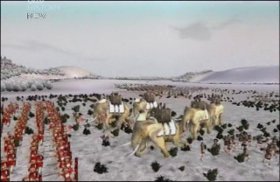 Time Commanders is a BBC2 show that ran for two seasons, between 2003 and 2005. In it, four players controlled one army (two as “generals”, two as “lieutenants / captains”) in a classical era battle, with a preliminary version of the Rome: Total War engine (which wasn’t yet released at the time, so Total War fans were actually seeing the upcoming game for the first time, at least during the beginning of the first season). Interestingly, instead of players competing against each other (either solo or in teams), all of them were on the same side; their opponent wasn’t run by an AI, but was instead controlled by (unseen) technicians, instructed to use tactics similar to the actual ones used in that battle. Incidentally, the show took care to select players without video gaming experience, which I think actually makes things more interesting: they don’t see it as a “video game” they have to beat, but as an important battle that actually happened, some 2000 years ago. Which is exactly how one should look at it.
Time Commanders is a BBC2 show that ran for two seasons, between 2003 and 2005. In it, four players controlled one army (two as “generals”, two as “lieutenants / captains”) in a classical era battle, with a preliminary version of the Rome: Total War engine (which wasn’t yet released at the time, so Total War fans were actually seeing the upcoming game for the first time, at least during the beginning of the first season). Interestingly, instead of players competing against each other (either solo or in teams), all of them were on the same side; their opponent wasn’t run by an AI, but was instead controlled by (unseen) technicians, instructed to use tactics similar to the actual ones used in that battle. Incidentally, the show took care to select players without video gaming experience, which I think actually makes things more interesting: they don’t see it as a “video game” they have to beat, but as an important battle that actually happened, some 2000 years ago. Which is exactly how one should look at it.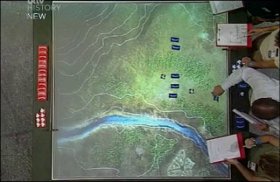 Before the actual battle, there were mission briefings (shown, again, using the R:TW engine) in which both the team and the audience were told about the historical background for the battle, the generals and forces involved, what was at stake, and which key troops both sides had available. The lieutenants / captains were also responsible for the initial scouting of enemy forces and positions, and for relaying that information to the generals.
Before the actual battle, there were mission briefings (shown, again, using the R:TW engine) in which both the team and the audience were told about the historical background for the battle, the generals and forces involved, what was at stake, and which key troops both sides had available. The lieutenants / captains were also responsible for the initial scouting of enemy forces and positions, and for relaying that information to the generals.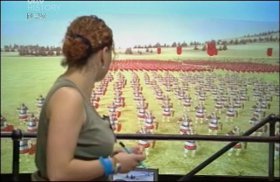 Meanwhile, two actual historians and/or military instructors (one permanent, the other one rotating between several people from episode to episode) gave more insight on the battle, and commented on the team’s tactics, outside the hearing range of the players. Only after the battle ended would they tell the players what they did rightly and wrongly, and how the battle actually went, historically. Note also that quite often the team would lose the battle, and lose spectacularly; in a way, watching how much some of the players could “blow it” was one of the series’ most entertaining aspects. 🙂
Meanwhile, two actual historians and/or military instructors (one permanent, the other one rotating between several people from episode to episode) gave more insight on the battle, and commented on the team’s tactics, outside the hearing range of the players. Only after the battle ended would they tell the players what they did rightly and wrongly, and how the battle actually went, historically. Note also that quite often the team would lose the battle, and lose spectacularly; in a way, watching how much some of the players could “blow it” was one of the series’ most entertaining aspects. 🙂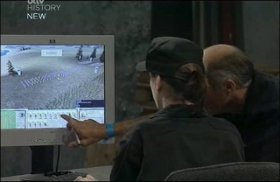 In short, this show — sadly cancelled after only two seasons — combines four things I love: history, video games, strategy, and British humor. What more could anyone want? 🙂 The episodes don’t seem to be available on DVD or Blu-Ray, unfortunately, but most of them, if not all, are currently on YouTube (just search for “time commanders“), and, of course, if you’re inventive, there are always other places to look for them. I’d still buy the series on DVD, if it were ever released, just to have it in better quality.
In short, this show — sadly cancelled after only two seasons — combines four things I love: history, video games, strategy, and British humor. What more could anyone want? 🙂 The episodes don’t seem to be available on DVD or Blu-Ray, unfortunately, but most of them, if not all, are currently on YouTube (just search for “time commanders“), and, of course, if you’re inventive, there are always other places to look for them. I’d still buy the series on DVD, if it were ever released, just to have it in better quality.